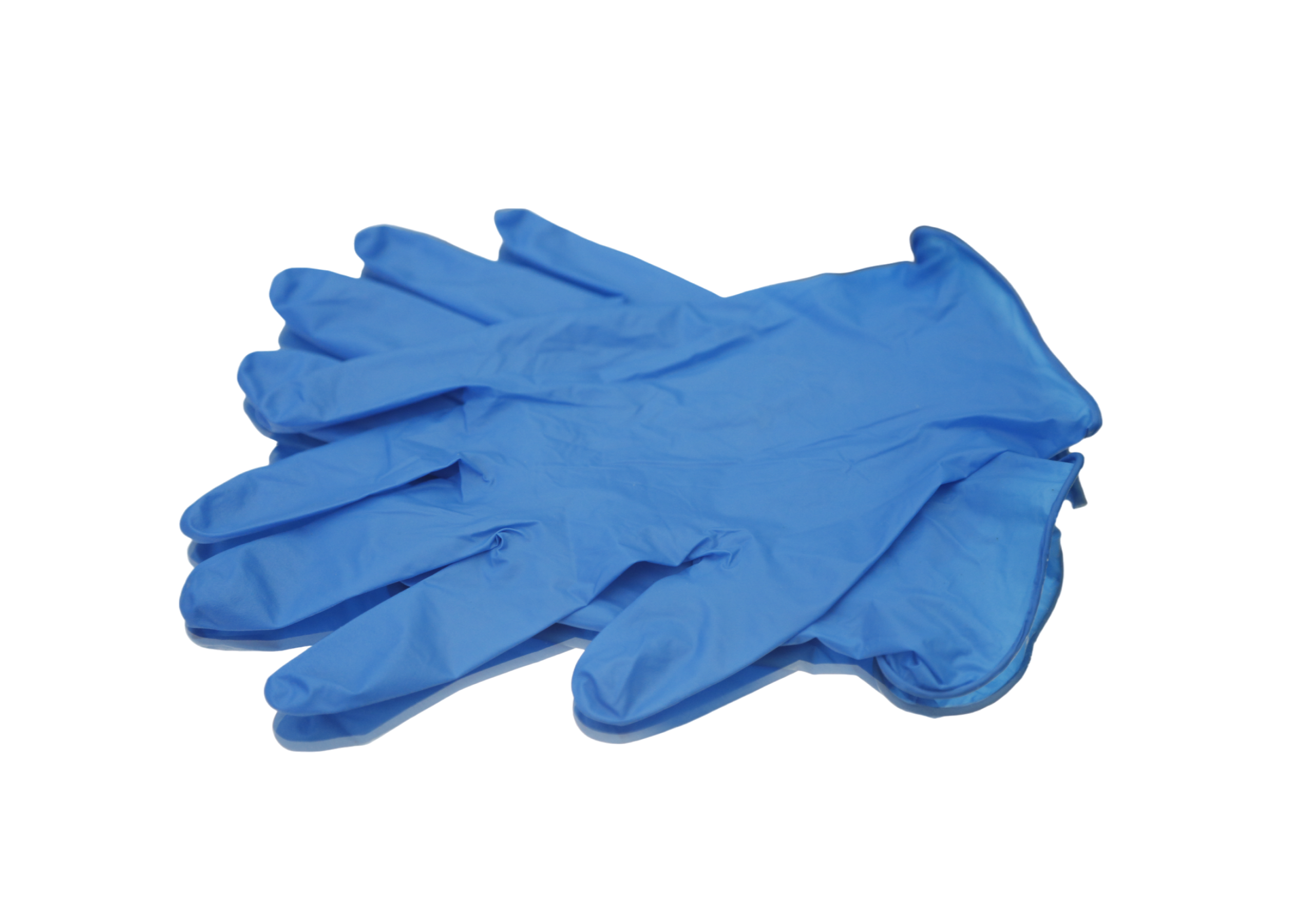
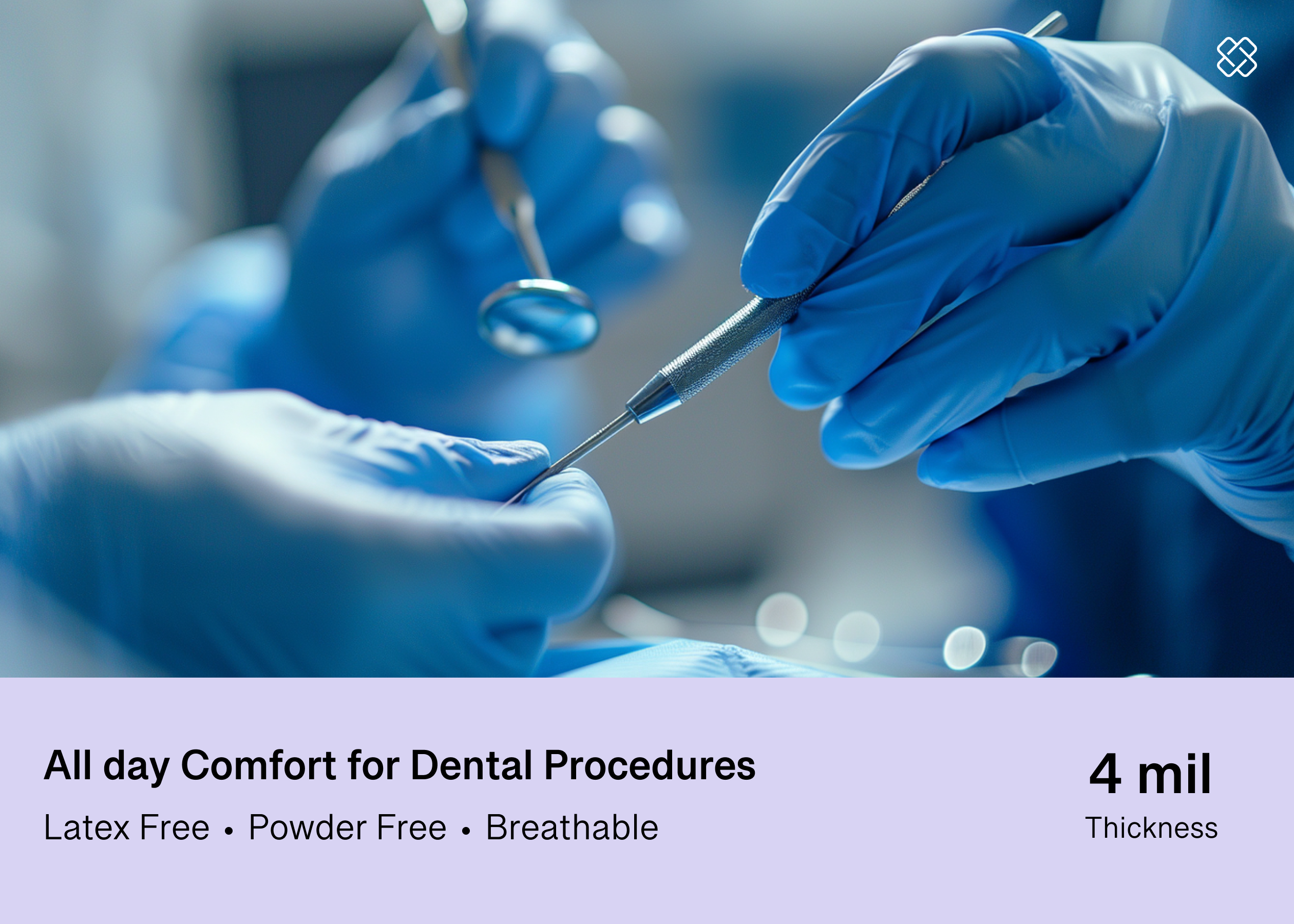
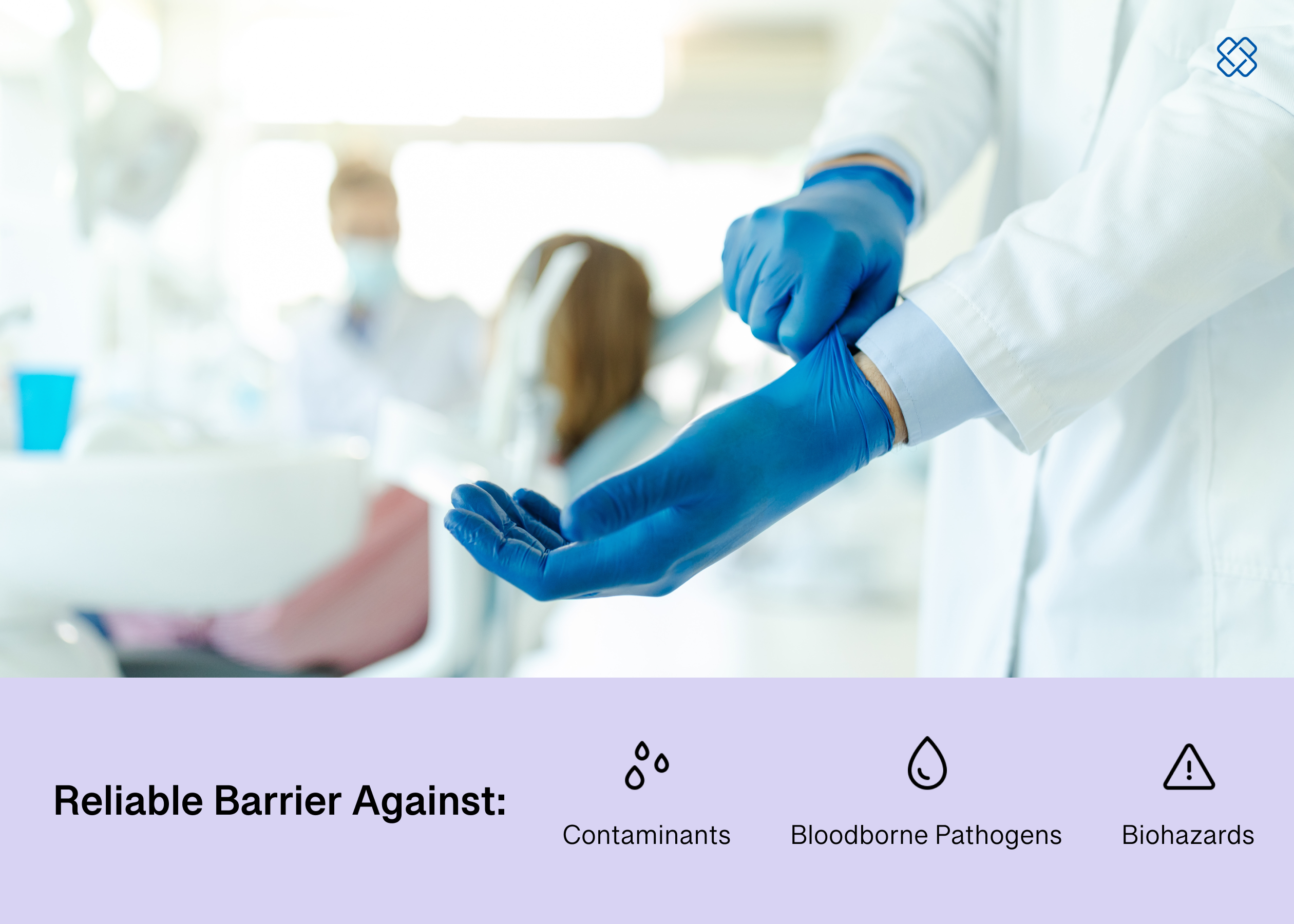
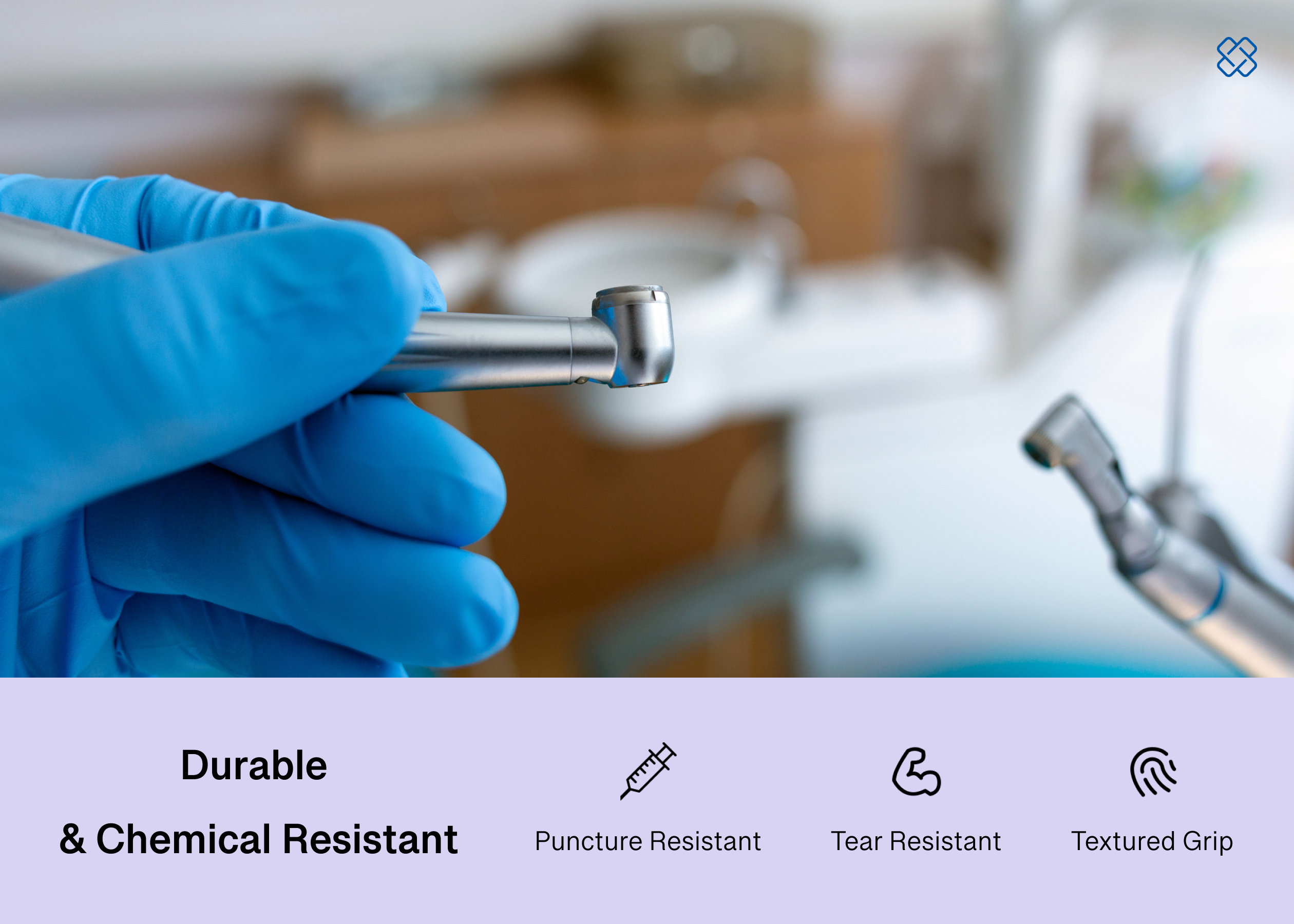
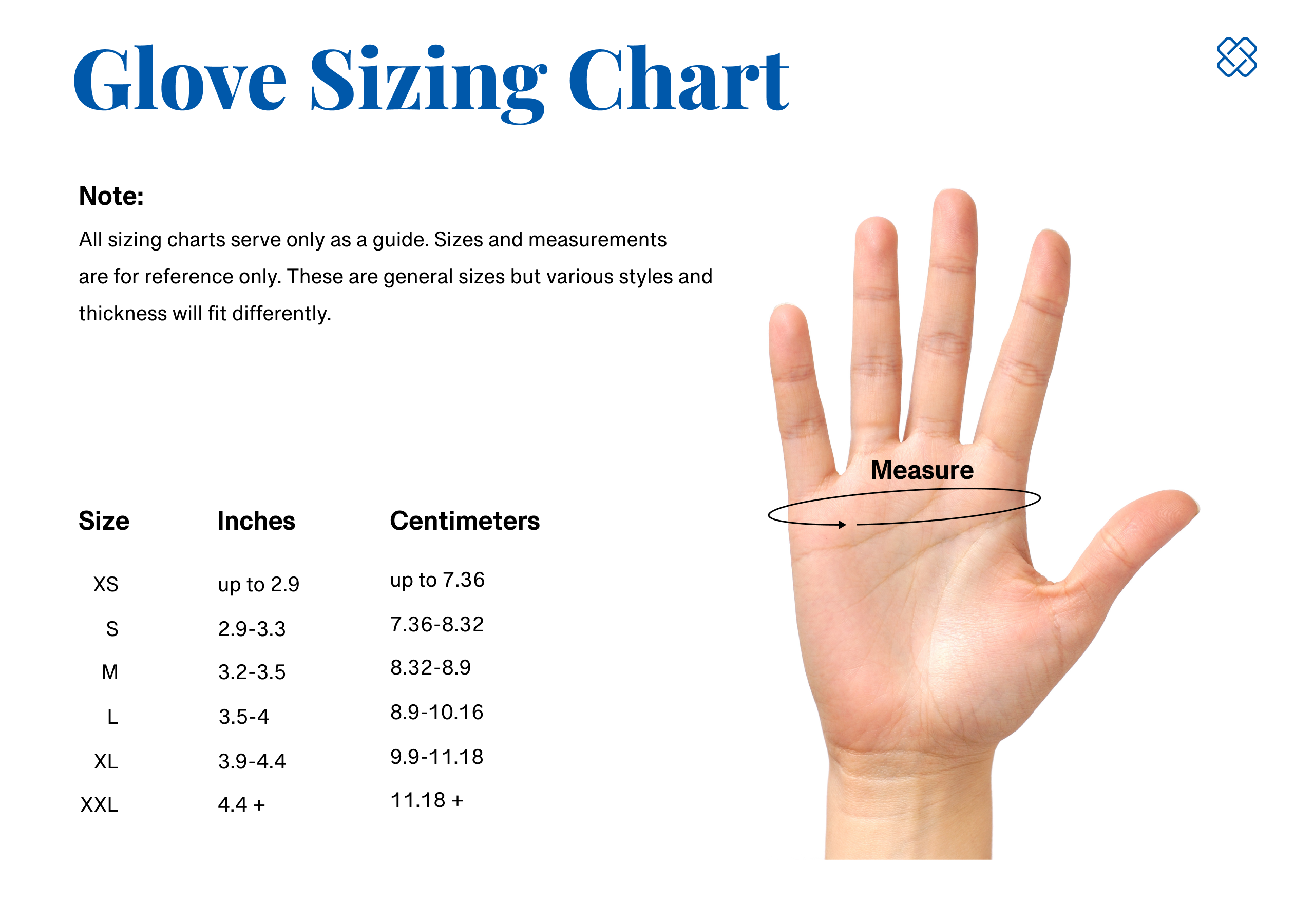
US Made Nitrile Dental Exam Gloves
Crafted from high-grade US nitrile, These gloves are engineered to resist common chemicals, contaminants, and blood borne pathogens encountered in dental procedures.
- Ambidextrous
- Textured Fingertip
- Non-sterile
- Powder-free
- Not Made With Natural Rubber Latex
- Beaded Cuff
- Single Use Only
- Meets ASTM D6319 standards
- Tested against common healthcare chemicals including: Glutaraldehyde, formaldehyde, povidone iodine and quaternary detergent
- Made In America
- 10 boxes/case
- 100 gloves/box
- 90 gloves/box XX-large*
To secure your gloves as low as $3.99 a box. Order in Bulk.
Ordering Info
- Cascade Blue gloves come packaged
- 100 gloves/box
- 90 gloves/box for XX-Large
- 1000 gloves/case
- 60 Cases/Pallet
- Fully Customizable Configurations
Quality Standards
- ASTM D6319-19 (2023): Standard Specification for Nitrile Examination Gloves for Medical Application
- FDA 510(K) Clearance
- Manufactured in an ISO 9001:2015 certified facility
Size & Dimensions
Length: 240 mm
Fingertip Thickness:
Minimum 3.5 mil
Palm Thickness:
Minimum 3 mils
Weight: 4 g
Download Spec Sheet
Physical Properties
Ultimate Elongation: >/= 500% before aging, >/= 400% after aging
Tensile Strength: >/=14 before aging >/=14 after aging
Choose options





Dental Exam Gloves FAQ
Dentists often choose nitrile gloves due to their durability, puncture resistance, and hypoallergenic properties, which are especially important for patients or staff with latex allergies. Nitrile gloves are also resistant to many chemicals encountered in dentistry, making them a safer option compared to latex
Yes, nitrile gloves are widely used in dental settings as they provide a strong barrier against pathogens, chemicals, and punctures, essential for both patient and practitioner safety.
Nitrile gloves offer a reliable barrier against contamination, protection from common dental chemicals, and reduced allergy risk, which is why they’re popular in dental practices.
Nitrile gloves effectively block bacteria and other microorganisms, making them ideal for maintaining hygiene in dental settings.
Nitrile gloves aren’t suitable for handling certain harsh chemicals like ketones, aromatic solvents, and concentrated acids, or for tasks requiring thermal protection, such as handling hot sterilized tools
Nitrile gloves are the most common in modern dentistry due to their resilience, protection, and hypoallergenic nature, which make them suitable for daily use.
For dental use, a glove thickness of 3-6 mil is ideal, providing the right balance between dexterity and protection.
Yes, medical-grade nitrile gloves meet standards for healthcare, offering durability and protection essential in dental and other medical applications.
Gloves should be changed between patients and whenever they become damaged to ensure hygiene and prevent cross-contamination.
Nitrile gloves are highly effective at preventing cross-contamination and are designed to protect both the patient and practitioner from infections in clinical settings.
Nitrile gloves can cause mild skin irritation in rare cases, often due to prolonged wear. Opting for our hypoallergenic or powder-free versions can help minimize any discomfort.
Medical-grade nitrile gloves are rigorously tested for puncture resistance, durability, and biological contamination, making them safe for healthcare use. Regular nitrile gloves may lack some of these stringent standards.
Blue or purple nitrile gloves are common in dental practices, as these colors help detect tears or contamination more easily.
While nitrile allergies are rare, some individuals may experience skin sensitivities. Choosing True Health hypoallergenic options can alleviate potential issues.
Due to latex allergy concerns, hospitals and clinics increasingly prefer nitrile gloves, which offer similar benefits without the risk of latex-induced reactions
Store nitrile gloves in a cool, dry place away from sunlight and heat to preserve their integrity and elasticity
Nitrile gloves are made from synthetic rubber and offer enhanced protection, but they have a higher production cost compared to latex gloves, which contributes to the price difference.
Yes, nitrile gloves are ideal for those with latex allergies, as they are latex-free and less likely to cause allergic reactions.
Nitrile gloves are made to fit snugly for a secure seal, which can sometimes feel tight over extended wear. Choosing the right size can help with comfort.
